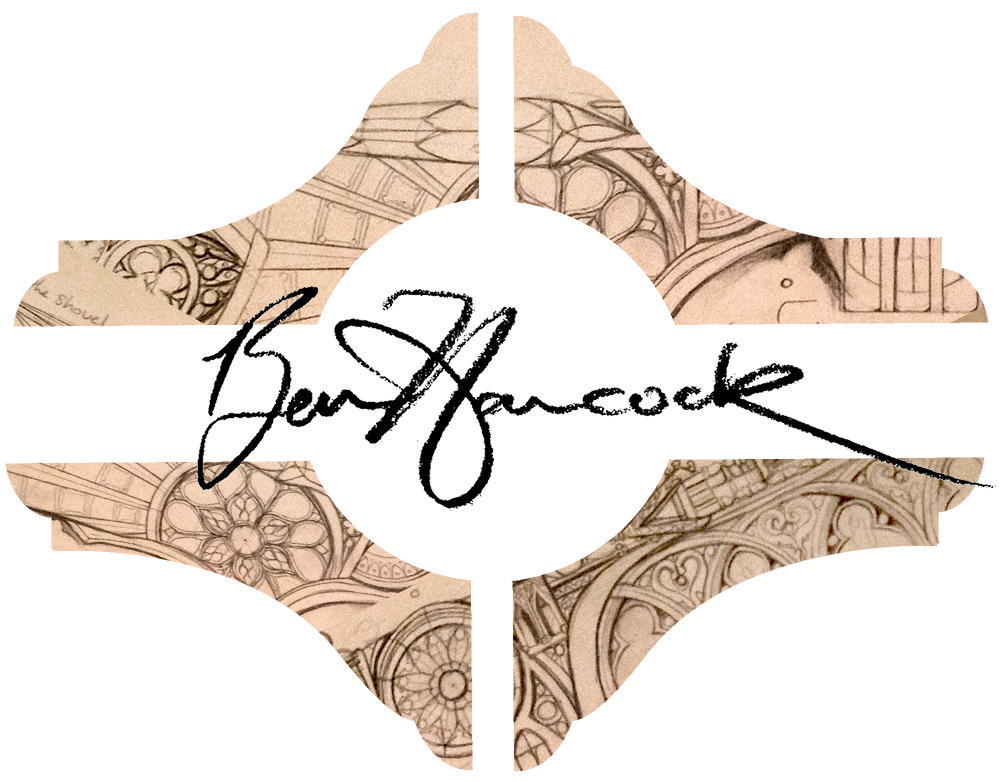I like to think about doing art as a sacrificial act. Mark 14 describes a scandalous moment between Jesus and a local prostitute (also Matt. 27 and Luke 7). She enters where Jesus and the disciples are breaking bread only to break an alabaster jar and start rubbing the perfume inside onto Jesus’ feet with her hair. Clearly this clingy woman of the night has no boundaries or even common sense. People there recoil at the amount of money it could have been sold for to give to the poor. It seems senseless.
However the vase wasn't just expensive; it represented the woman’s entire life and livelihood. Families kept vases like these almost as a status symbol, costing an upward of a years wages. This jar was an heirloom of sorts. This one she had turned into the toolbox of her trade. So after reading this scene we see that she wasn't wasting, but rather symbolically laying out her life onto Jesus’ feet. It had no practical purpose. No money was gained, no sustenance had, but the woman was now liberated and Christ was now exalted. She not only had shown a physical symbolic representation of an inward spiritual reality (like Baptism for example), but her symbolic sacrifice was also material sacrifice. It crossed over into real cost. In the end Jesus rebuked the party's rebuke, saying, “Leave her alone... Why are you bothering her? She has done a beautiful thing to me...” When appropriate, a simple display of beauty can bring much glory to God. This display was destroying an idol.
Worship in music does this. When I worship corporately, I am not the first one to physically show how I feel. I want to dance or sing super loudly, but because of my idolatry of other people's opinions, I refrain. In that situation if I danced and sang and clapped where other people weren't, I would not only be showing a physical manifestation of an inward joy, but I would also be letting go of an idol and grabbing hold of my dignity found in the Lord.
How would we do this in visual art? Initially, it's easy to see how we could use a manipulated object to point to an inward (or outward) reality. This is what art has done for ages. What does art do but point to itself or something elsewhere? However I can craft the most visually enrapturing, Gospel centered, audience loving sculpture, but if it only stays in a gallery, or further, only in my studio, then there is no Gospel in that work. The idol of self-preservation and pride is still there, Look at my thoughtfulness and skill. I would just be using the Gospel story in my work as bait to do that. I would be singing, but not worshiping.
A crossover, mentioned before, has to happen where symbol of a reality again becomes reality. Humble Beast records creates Jesus exalting music. However, they give all of their music away for free under the moniker "Freely Given", devoted to radical generosity. The Gospel didn't stop at the end of a song; it continued in their entire business model. They are taking on the burden of finding funds elsewhere to be able to give us all their (amazing) albums.
"Visual artists giving their work away for free? Hilarious." Maybe so, but the mindset is still correct. What about Jesus raising you from the depths of your sin makes you want to change how you work? It could be an actual donation-type sacrifice like offering a percentage to Compassion International or International Justice Mission. Like with Humble Beast, the sacrifice relinquishes the idol of wealth while still imitating Christ's ultimate generosity. Another way is intentionally working within, say, the gallery scene with an explicit Christian message to redeem that part of culture. The idol dropped would be potentially fame or favoritism. You certainly wouldn't be picked for certain shows, but if the work is of quality, people can't ignore it or your witness.
Somehow visual art needs to transcend the artist and his or her own thoughts and skills. By loving the Lord, art is the medium for which not only His story is told, but also how it is displayed. Like the woman with the alabaster jar, the expression is just as important as the symbol. Surrendering idols make work all the more beautiful.
